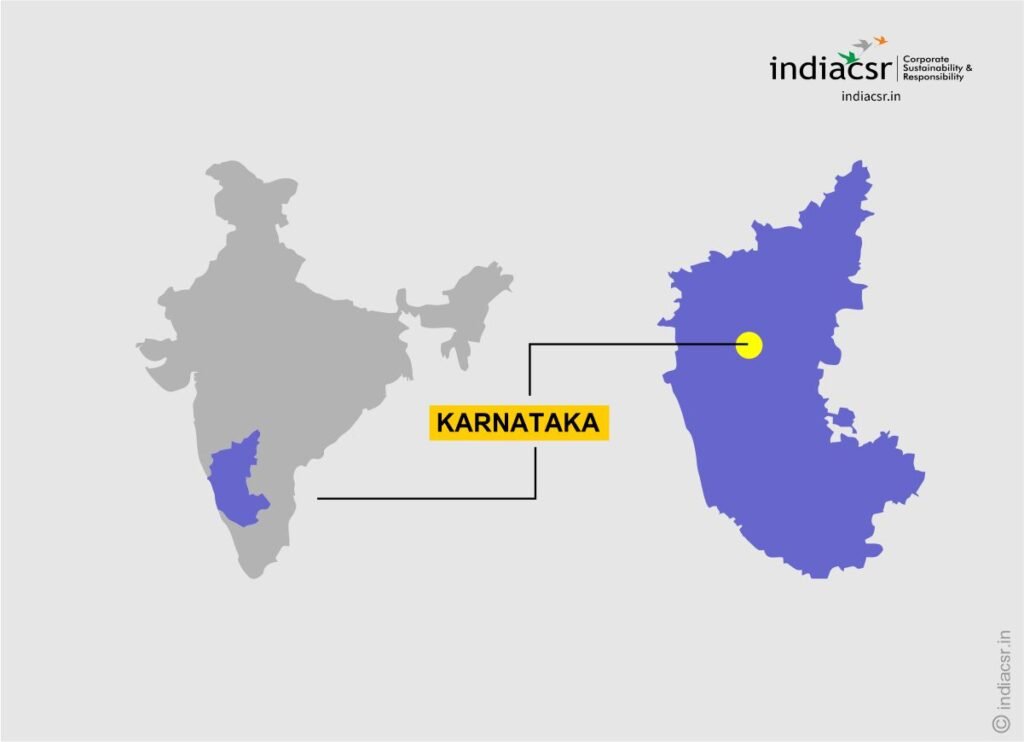Karnataka Government Launches ‘Samatva’ Initiative to Revamp 2,000 Schools Across the State
In a significant move to elevate the standard of education in Karnataka, the state government has announced a comprehensive initiative to transform government schools through the ‘Samatva’ programme. Spearheaded by Deputy Chief Minister D K Shivakumar, this ambitious project aims to raise Rs 2,000 crore in Corporate Social Responsibility (CSR) funds to revamp 2,000 schools across the state. This public-private partnership seeks to enhance infrastructure, improve learning outcomes, and ensure student wellbeing in government schools, aiming to bring them on par with private institutions.
A Strategic Vision for Education Reform
Developing Karnataka Model Schools
The ‘Samatva’ programme is designed to establish Karnataka model schools on a minimum of three acres of land, with each school serving every three gram panchayats throughout the state. This initiative not only focuses on infrastructure development but also addresses key areas such as early childhood care and education (ECCE), vocational education, and the establishment of science and ICT labs. The goal is to create a conducive learning environment that fosters academic excellence and holistic development.
Public-Private Collaboration: A Pathway to Success
MoUs Signed for CSR Contributions
In a collaborative effort, the Karnataka government has signed Memorandums of Understanding (MoUs) with company CEOs, private school chairpersons, and deputy commissioners of various districts, including Bengaluru and Belagavi. These partnerships are crucial in bridging operational and academic gaps in the identified schools over the next five years. The government has appealed to companies to allocate an average of Rs 2 crore for redeveloping existing schools and Rs 8 crore for establishing new greenfield schools.

Focus Areas for CSR Interventions
Targeting Key Educational Improvements
The department of school education has pinpointed seven critical focus areas for CSR interventions, including infrastructure enhancement, ECCE, vocational education, and the creation of tinkering and science labs. The overarching aim is to improve foundational literacy and numeracy skills to 75 percent by 2025-26, boost SSLC and PU graduation rates by 20 percent, and reduce dropout rates by 50 percent. Additionally, the programme seeks to ensure that all children with special needs receive the education they deserve.
Financial Allocation and Implementation
Phase 1: A Detailed Breakdown of CSR Funding
The first phase of the ‘Samatva’ programme requires an infusion of Rs 2,000 crore, targeting 500 schools. Specific allocations include Rs 572 crore for 143 schools in the Belagavi division, Rs 580 crore for 145 schools in the Kalaburagi division, Rs 436 crore for 109 schools in the Mysuru division, and Rs 412 crore for 103 schools in the Bengaluru division. This phased approach ensures that funds are utilized efficiently and effectively across the state.
Ensuring Accountability and Monitoring Progress
Project Management and Evaluation
To ensure the success of this initiative, a special project management unit under the commissioner of school education will monitor and review the programme’s effectiveness. This unit will serve as the single point of contact for CSR partners, ensuring that the programme’s goals are met. Additionally, the Karnataka Monitoring and Evaluation Authority (KMEA) will oversee the project’s impact, providing regular updates and evaluations.
Historical Context and Future Aspirations
Building on Past Successes
This isn’t the first time Karnataka has leveraged CSR funds to develop model schools. From 2016 to 2022, the state attracted Rs 3,667 crore in CSR allocations for the education sector, leading to the successful transformation of select schools in the Ramanagara district. The initiative has already demonstrated its potential, with some schools witnessing a significant increase in admissions.
Addressing Concerns and Ensuring Inclusivity
Balancing Progress with Accessibility
While the development of model schools is a progressive step, it has raised concerns among villagers regarding the potential closure of smaller schools with fewer students. The government aims to ensure that these schools are not shut down and that students are not forced to travel long distances. The objective is to provide quality education within reach, preventing the migration of students and their families to urban areas.
A Vision for Educational Excellence
Shivakumar’s Commitment to Educational Equity
Deputy Chief Minister D K Shivakumar emphasized the government’s commitment to stopping the migration of students to urban centers in search of quality education. He stated, “This PPP model to develop schools will help children remain and pursue education in their own villages. This model will ensure that the quality of education in government schools is on par with private schools. DCs should be accountable for the judicious use of the CSR funds and ensure that they are spent in the right direction.” With a clear vision and a collaborative approach, Karnataka is poised to set a new benchmark in public education through the ‘Samatva’ programme.
(India CSR)




















